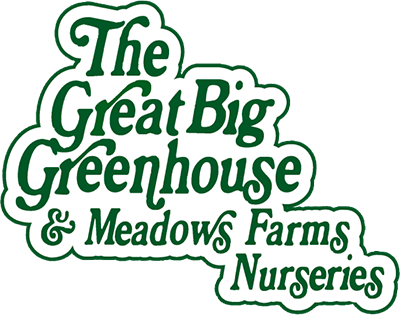UNDERSTANDING GARDENING TERMINOLGIES
Professor Doug here.
Our local schools are now back in session for the new year. I thought that it was only fitting that we do some school work as well with gardening terms. I always stress knowledge being a major key to being a successful gardener. Knowing plant terminology is a major part of plant knowledge. I find it very important to know all these different terms to eliminate misunderstanding in choosing the right plants, the right soils, the right chemicals, the right fertilizers, etc.
So, are you ready to go to school? I promise no dunce hats for anyone (maybe for me). Here are common nursery terms used with plants and plant products that we all need to know clearly:
- ANNUAL versus BIENNIALS versus PERENNIALS: An ANNUAL is a plant that only has a one-year life cycle—such as petunias, marigolds, vincas, pansies, etc. A BIENNIAL is a plant that completes its life cycle in two years, usually just showing only leaf growth the first year, and flowers the next. Some examples of biennials are Sweet Williams, Hollyhocks, Foxgloves, and Forget-me-nots. PERENNIALS are plants that live for more than a year such as hostas, peonies, coreopsis, sedums, daylilies, and more.
- DEER RESISTANT PLANTS: I feel like I am opening a big bag of worms with this terminology. But, deer-resistant plants are those plants that deer are less likely to nibble on or eat. But, when our deer population is heavy, and they are starving for some food then even the deer-resistant plants could be eaten.
- FULL SUN: If a plant is recommended to be in full sun then this means six or more hours of direct sunlight.
- PART SUN / PART SHADE: This usually refers to a plant needing three to six hours of direct sunlight
- FULL SHADE: Full shade usually refers to less than four hours of sun daily. Sometimes this could refer to sun filtering through a canopy of trees.
- DECIDUOUS versus EVERGREEN: Most shrubs and trees are considered to be either deciduous or evergreen. DECIDUOUS plants are those that lose their leaves each fall or winter and then generate new leaves in the spring. EVERGREEN plants are those plants that keep their leaves or needles throughout the year.
- PLANT HARDINESS ZONES: The Richmond area is in Zone 7. The lower the number, the more cold hardy for the plants. Ohio is zone 4. Parts of Canada are zone 2. The higher numbers go further south of Virginia, and the plants for these higher number zones typically refer to them as being tropical. Back around 1990, all the hardiness zones were subdivided. Now, Richmond is officially considered to be in Zone 7a, with the minimum cold temperatures ranging from 0 to 5 degrees. Now, this is based on our average temperature. We all know that we have had some winter days colder than this range.
- DEADHEADING: Deadheading is a termed used that describes the cutting off the old, spent flowers off the plant thus encouraging the plant to bloom again.
- NATIVE PLANTS: To be honest, the term “native” can be confusing, even within the plant industry. But, personally, I like the definition to apply to any plant that was growing here when the settlers arrived. To me this is a true native plant.
- ORGANIC: If a product is listed as being organic then it is a product that is derived from living material.
- WEED: The best definition of a weed is “any plant growing here that is not wanted.”
- SELF-POLLINATING: Is a plant that does not need to have pollen from another plant in order to fruit.
Wow!!! I could go on and on with more gardening terms but I will stop here. Maybe later I will do “volume II” with more plant terminology.
Class is over. You are adjourned.

